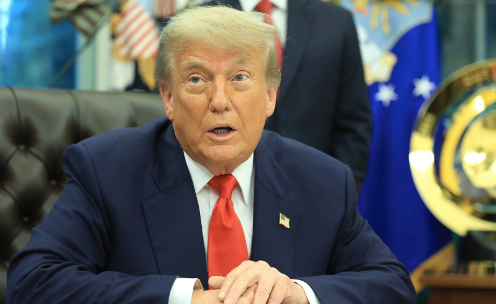
In a dramatic escalation of trade tensions between two of North America’s closest allies, U.S. President Donald Trump abruptly ended all ongoing trade negotiations with Canada, citing what he described as an “egregious and hostile” digital services tax (DST) recently imposed by the Canadian government. The announcement made on June 27, 2025, sent shockwaves through the global markets and raised serious concerns over the future of economic cooperation between the two countries.
Canada’s 3% digital services tax, which came into effect in 2024 but is being applied retroactively from 2022, targets revenues generated by large technology firms in Canada, most of which are U.S.-based corporations like Google, Apple, Amazon, Meta, and Microsoft. The Canadian government maintains that the tax is necessary to ensure fair contributions from digital businesses operating on Canadian soil, especially as traditional brick-and-mortar companies continue to pay significant amounts in taxes. The United States sees this as a discriminatory policy that unfairly penalizes American firms.
Trump said in a bold statement and posted on the social media platform Truth Social, and accused Canada of attacking American businesses and warned of swift retaliation. “Based on this egregious tax, we are hereby terminating ALL discussions on trade with Canada, effective immediately,” Trump declared. He added that Canada would be informed within seven days about the retaliatory tariffs it will face, signaling a re-escalation of trade hostilities that had only recently begun to cool.
This decision has not only halted progress on ongoing trade negotiations—including aspects of the U.S.-Mexico-Canada Agreement (USMCA)—but has also raised the specter of a new tariff war between the two countries. U.S. officials say the digital tax could cost American tech companies between $900 million $2.3 billion annually, and the administration appears prepared to fight back with economic measures that could hit a broad range of Canadian exports.
The Canadian government, led by Prime Minister Mark Carney, responded by stating that it remains committed to a fair and rules-based international tax system and will continue to defend its right to implement domestic tax policies. Ottawa has not indicated whether it will backtrack on the DST but has expressed regret over the breakdown in talks.
The broader implications of the dispute are already being felt. Stock markets showed signs of volatility following the announcement, with technology stocks dipping amid fears of regulatory and tariff-related pressures. Although the U.S. markets recovered to close at record highs, analysts warn that a prolonged trade conflict could spook investors and disrupt supply chains, especially in the digital and e-commerce sectors.
The development marks a significant shift in the Biden era approach, which had aimed for a consensus-based global taxation frame worked through forums like the OECD. Trump’s return to a more unilateral, retaliatory trade posture is reminiscent of his earlier presidency during which he frequently used tariffs and trade threats as negotiating tools.
People believe that this latest move is not the only response to Canadian policy but also a part of Trump’s broader strategy to galvanize political support by adopting a tough stance on global economic issues. This is against allies who impose what he sees as unfair restrictions on U.S. interests. Elections are on the horizon, Trump’s messaging may resonate with his base but risks damaging long-term diplomatic and economic ties with key partners like Canada.
As both of these sides dig in, the hope for a swift resolution appears bleak What was once considered a stable and cooperative trade relationship between U.S. and Canada is now at risk of being severely undermined potentially affecting billions of dollars in bilateral trade, thousands of jobs and the overall credibility of North America’s economic instability. Keep Reading Questiqa.com for more news.

